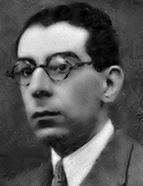

The shadow of António Sardinha is also noticeable in articles such as “ O génio peninsular ” [The Peninsular Genius] ( NP, II s eries , n o. 4, 1922) or “ À margem da obra de Gil Vicente ” [On the margin of Gil Vicent’s work] ( NP , III s eries , No. 1, 1925, pp. 87-90), with Hispanist traits that accompany the shift in the IL ideologue ’ s thinking in the last years of his life – although there were steps that he took differently from the latter, such as joining, with Rolão Preto and Manuel Múrias, the 1 st of December Commission (from 1927 onwards , Sociedade Histórica da Independência de Portugal [ Historical Society of the Independence of Portugal ] ), from which Sardinha always kept his distance. In any case, the latter ’ s death in 1925 coincided with Cavalheiro ’ s political withdrawal from the movement, but not in terms of the cornerstones of his historiographical work. In fact, at the end of the 1930s, together with João Ameal, he recovered the notes that Sardinha had left for his História de Portugal [History of Portugal] , in a set of texts entitled Erratas à História de Portugal [Corrigenda to the History of Portugal ] . In the introduction to this collection, he stated that he was “ embarking on a task of blatant moral, intellectual and national significance, since, quoting the historian from Monforte, “ the best way to serve your country is to love it and defend it in the integrity of its History ” ( Erratas à História de Portugal , 1939, n. p. ). Significantly, he also claim ed to respond thus to the “ denationalisation ” carried out by the dominant historiography in the 19 th and early 20 th centuries: “ [...] during the 20 th century [ sic ] [...] the representatives of the victorious liberal faction indulged in a systematic deformation of our History [...] All the essential heritage of the Portuguese community suffered the violent attack of the new iconoclasts. ‘History’ was made out of everything: pamphlets, slander, Masonic insidiousness, falsehoods, subversive utopias, demagogic effects of low rhetoric [...]. This is the absurd ‘History of Portugal’ that we propose to amend or replace ” ( Idem ).
This work is financed by national funds through FCT - Foundation for Science and Technology, I.P, in the scope of the projects UIDB/04311/2020 and UIDP/04311/2020.
